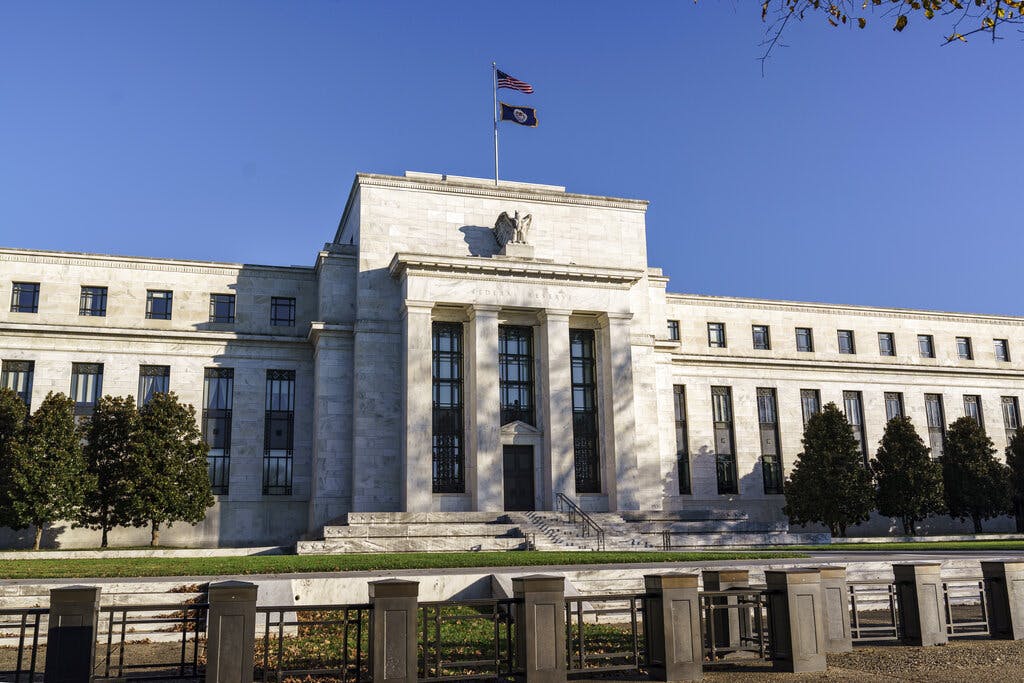The Times Rewrites the Federal Reserve Act
The mandate, in Times-speak, is no longer ‘stable prices’ but — presto — ‘low, stable inflation.’

The first story we went for in the Times this morning is on the Federal Reserve. It was flagged by David Leonhardt in the Gray Lady’s morning email. “Today, my colleague Jeanna Smialek explains how interest rates could impact the presidential election.” We forwarded it to Judy Shelton with a note saying, “You were waaaaay out front” — a reference to her warning on December 4 that the Fed was plotting to cut interest rates ahead of the election.
“It wouldn’t be the first time a Fed chairman was suspected,” Ms. Shelton wrote, “rightly or wrongly, of using monetary stimulus to swing an election.” The concern, she added, is that Chairman Jerome Powell “could end up choreographing an economic boost” to “help the incumbent presidential candidate.” Mr. Powell in his speech today on the Coast confirmed that the Fed expects to lower rates this year, but tried with a straight face to deny it is political.
Ms. Smialek reports that the Fed finds itself “in a tough spot,” on account of how it “expects to cut interest rates soon,” even though “doing so before an election will yank the apolitical central bank directly into a partisan fight.” That could infringe on what she calls the Fed’s “prized independence.” Yet, Ms. Smialek reports, Fed officials could well be obligated to act, though they aren’t “free to do whatever they want.”
That’s because Congress, Ms. Smialek says, “has given the Fed its goals — full employment and low, stable inflation — and it holds regular oversight hearings.” Ms. Smialek’s wording of the Fed’s “dual mandate” caught Ms. Shelton’s eye. “Low, stable inflation,” is how the Times puts it — emphasis ours. “This is verbal sleight of hand, no?” Ms. Shelton asked on X. She contrasts Ms. Smialek’s wording and the actual “legislative language” from Congress.
That was amended into the Federal Reserve Act in 1978 by the Humphrey-Hawkins Act. It mandated that the Federal Reserve focus on “stable prices” — emphasis, again, ours. In that law, Ms. Shelton adds, Congress “specifically called for the reduction of inflation to zero by 1988,” along with the central bank’s “3 percent unemployment objective.” Along the way, the Fed lost sight of that zero inflation goal, and set for itself a new goal: 2 percent inflation.
So it’s perhaps understandable why the Times would rewrite the Fed’s legislative mandate to provide “stable inflation.” After all, the central bank has done its best to cast a sheen of legitimacy to a rate of inflation, 2 percent a year, that by definition causes prices to double within around 35 years. That level of inflation wreaks a corresponding havoc on the savings of working Americans, creating what a Utah senator once called “the illusion of wealth.”
Would Mr. Powell be willing to ease up on its inflation fight to boost the economy in an election year, despite Ms. Smialek’s description of the central bank as the “Apolitical Fed”? The Times reporter reckons there is “little reason to think that rate cuts by the Fed would be a ploy to bolster Democrats.” This overlooks the pressure from Democrats, including President Biden, who all but insisted on rate cuts in remarks earlier this month.
“I can’t guarantee it,” Mr. Biden said in a speech about mortgage costs. “But I bet — you betcha — those rates come down more,” he added, referring to the Fed as “that little outfit that sets interest rates.” Did Mr. Powell get the message? Just in case he didn’t, the Times stepped in this morning to remind the Fed chairman that the fight against spiraling price increases is less important than the need to supply America with “stable inflation.”

